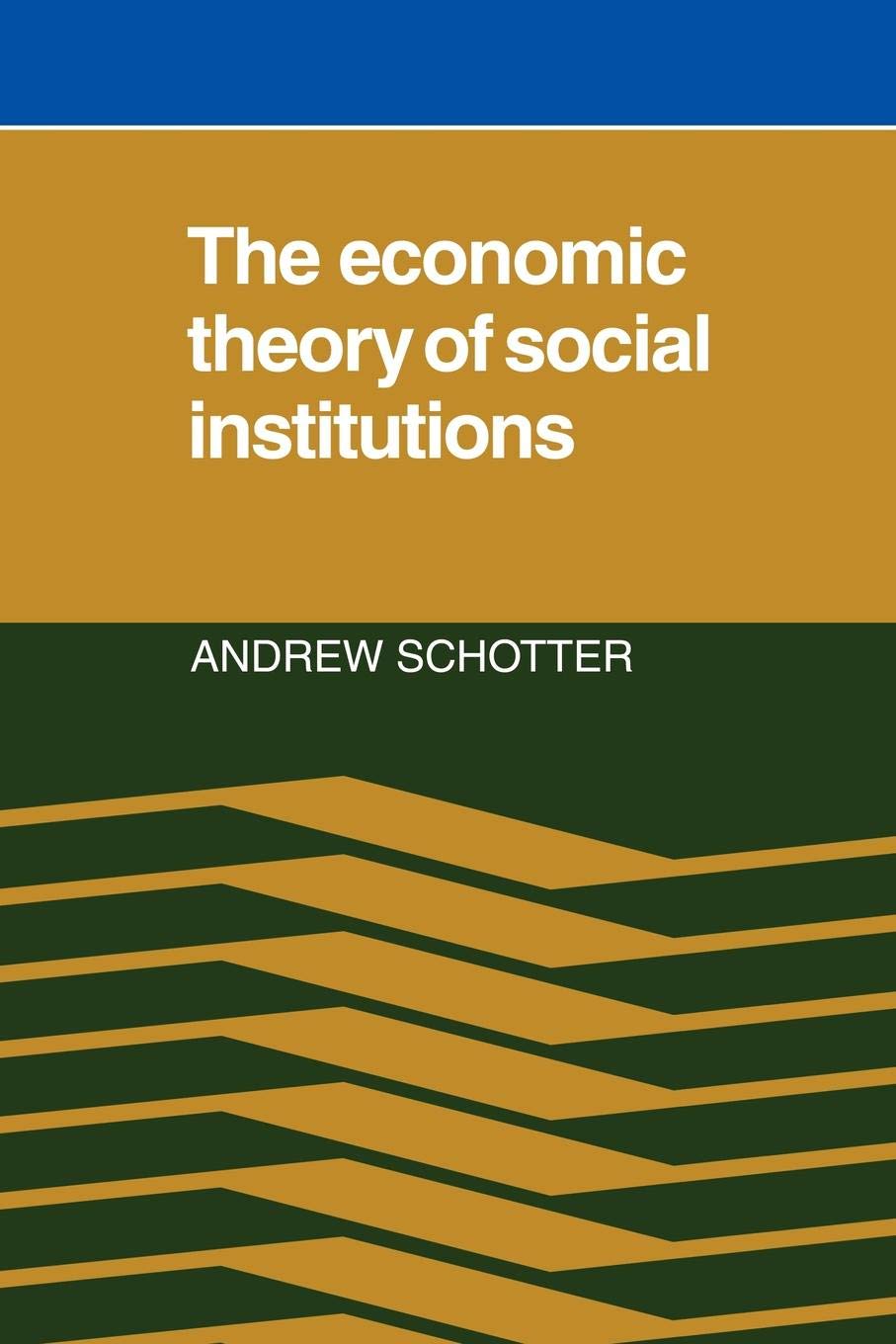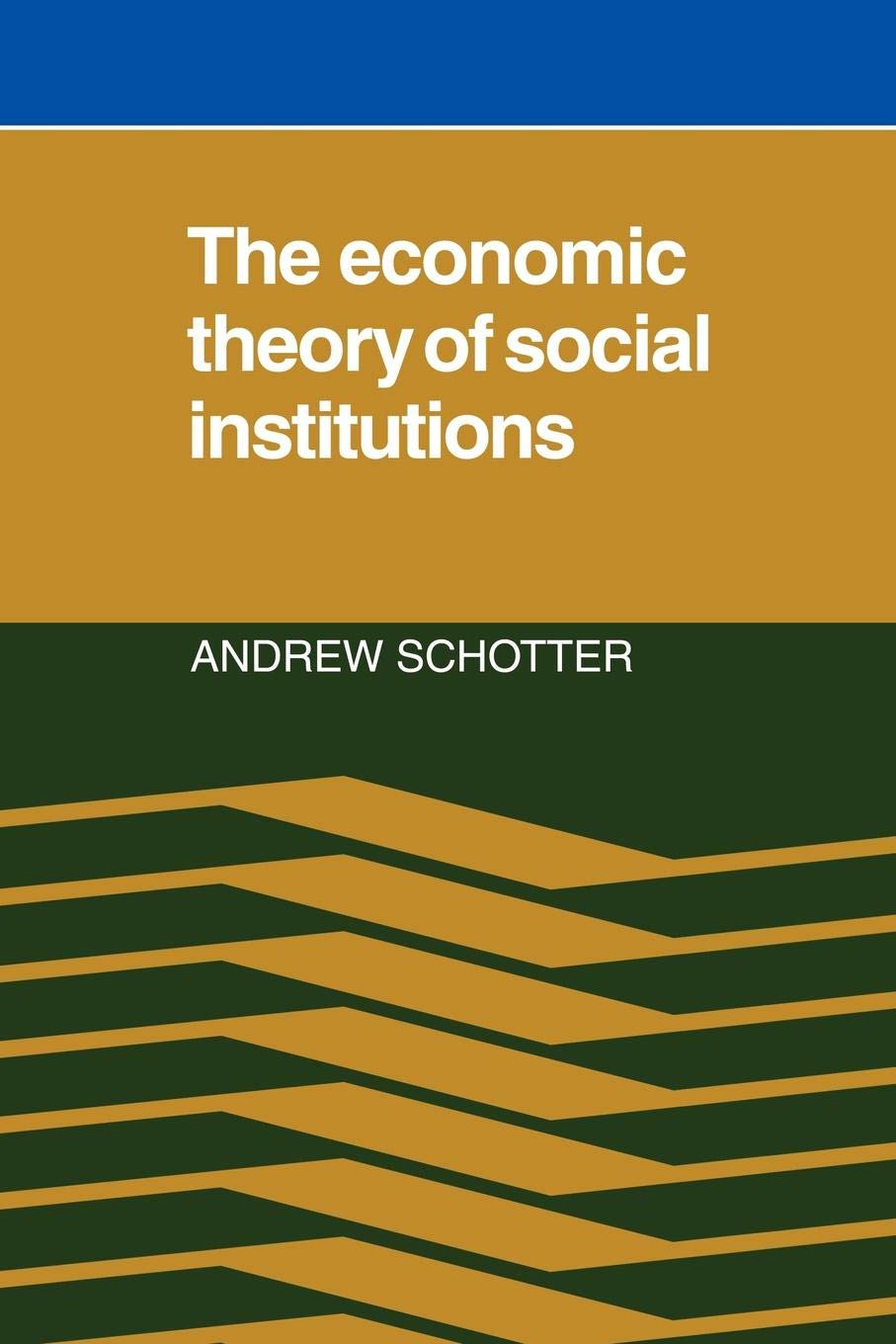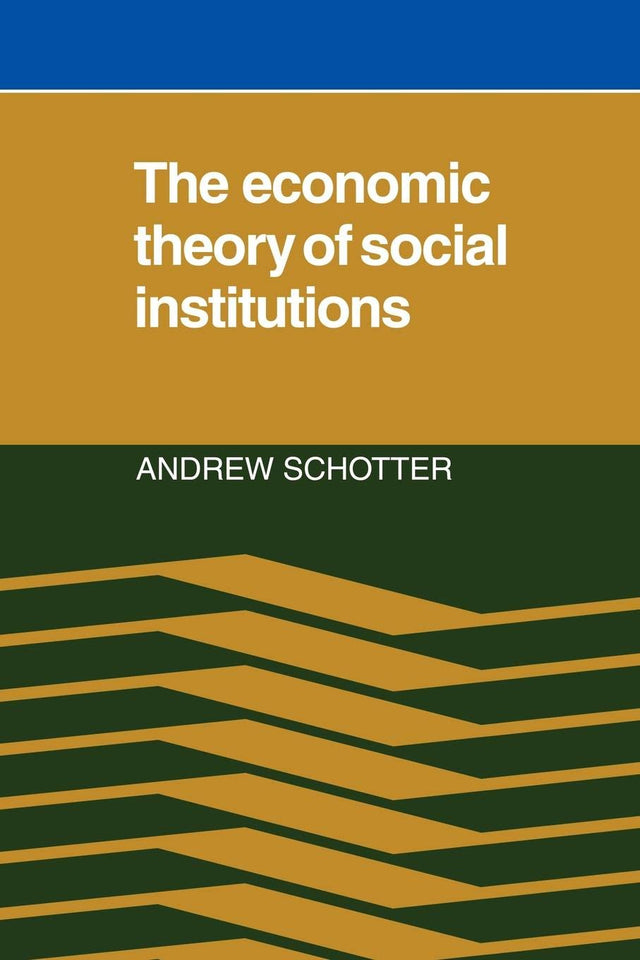The Economic Theory of Social Institutions
The Economic Theory of Social Institutions is backordered and will ship as soon as it is back in stock.
Couldn't load pickup availability
Genuine Products Guarantee
Genuine Products Guarantee
We guarantee 100% genuine products, and if proven otherwise, we will compensate you with 10 times the product's cost.
Delivery and Shipping
Delivery and Shipping
Products are generally ready for dispatch within 1 day and typically reach you in 3 to 5 days.
Author: Schotter, Andrew
Brand: Cambridge University Press
Edition: 1
Binding: paperback
Format: Import
Number Of Pages: 192
Release Date: 26-06-2008
Part Number: Refer to Sapnet.
Details: Product Description
This book uses game theory to analyse the creation, evolution and function of economic and social institutions. The author illustrates his analysis by describing the organic or unplanned evolution of institutions such as the conventions of war, the use of money, property rights and oligopolistic pricing conventions. Professor Schotter begins by linking his work with the ideas of the philosophers Rawls, Nozick and Lewis. Institutions are regarded as regularities in the behaviour of social agents, which the agents themselves tacitly create to solve a wide variety of recurrent problems. The repetitive nature of the problems permits them to be described as a recurrent game or 'supergame.' The agents use these regularities as informational devices to supplement the information contained in competitive prices. The final chapter explores the applicability of this theory, first by relating it to previous work on the theory of teams, hierarchies, and non-maximizing decision theory, and then by using it to provide a new approach to a variety of questions both within and outside economics.
Book Description
This book uses game theory to analyse the creation, evolution, and function of economic and social institutions.
EAN: 9780521067133
Package Dimensions: 8.8 x 6.1 x 0.9 inches
Languages: English





